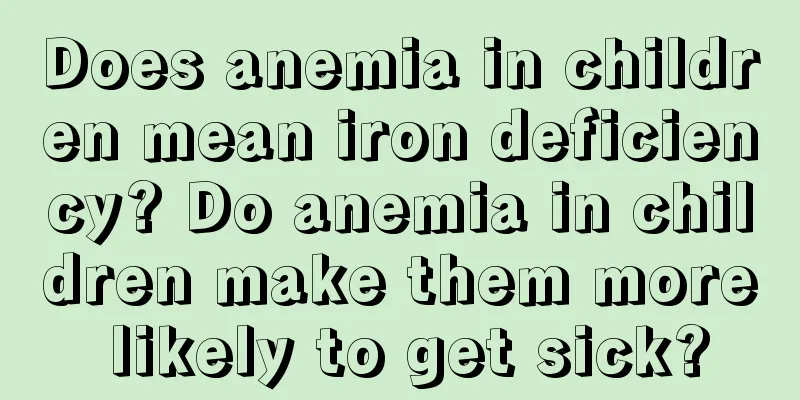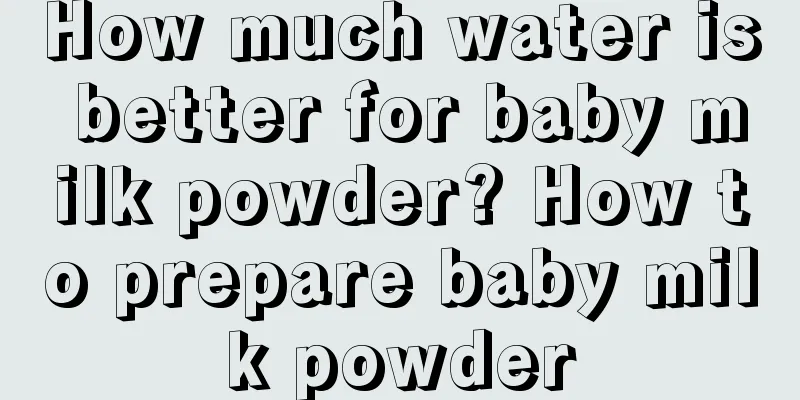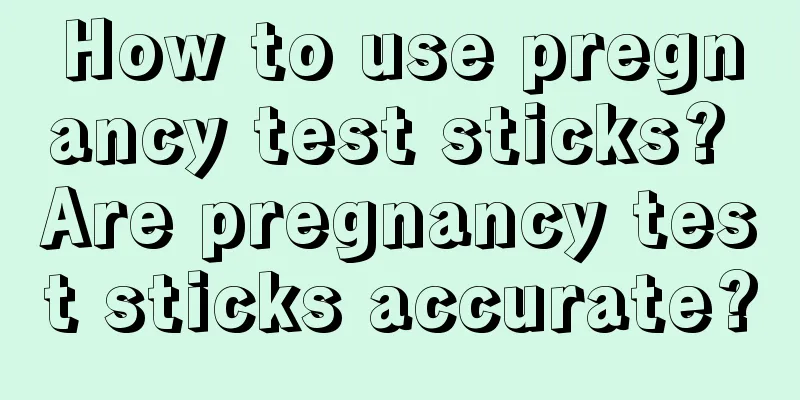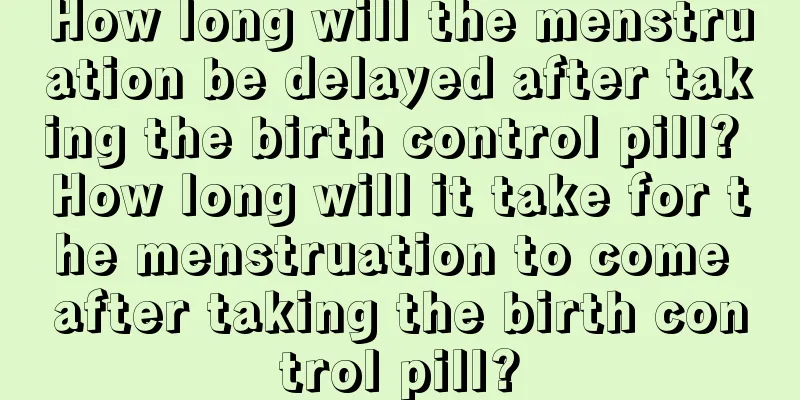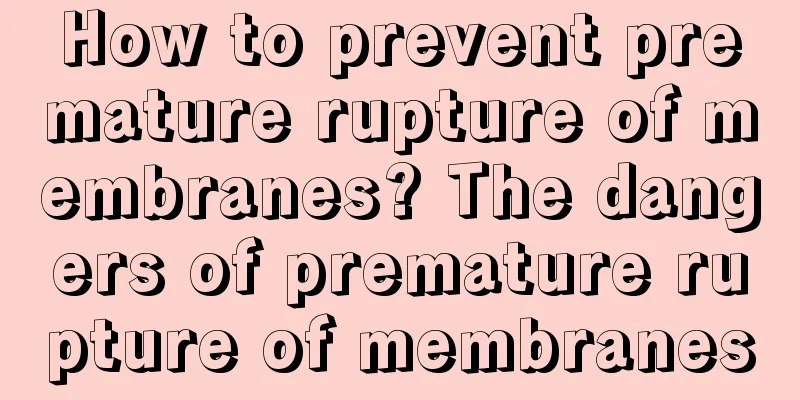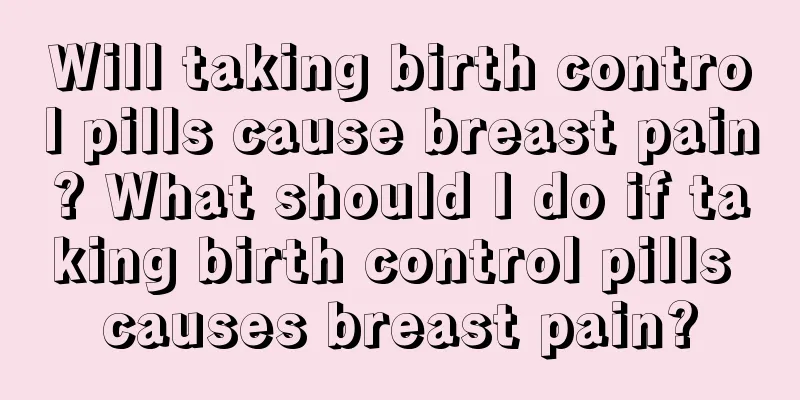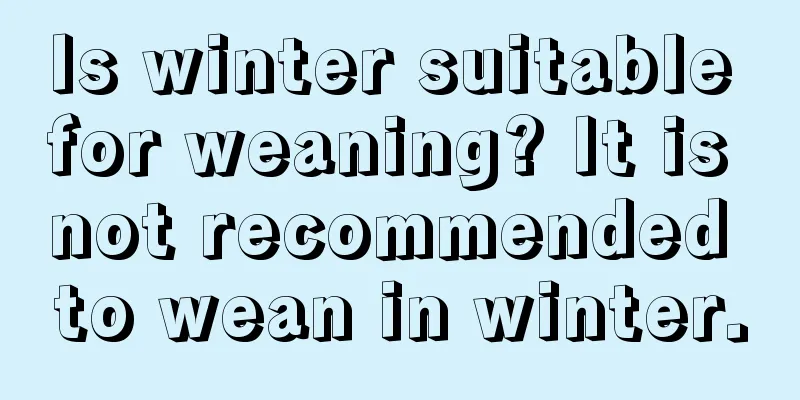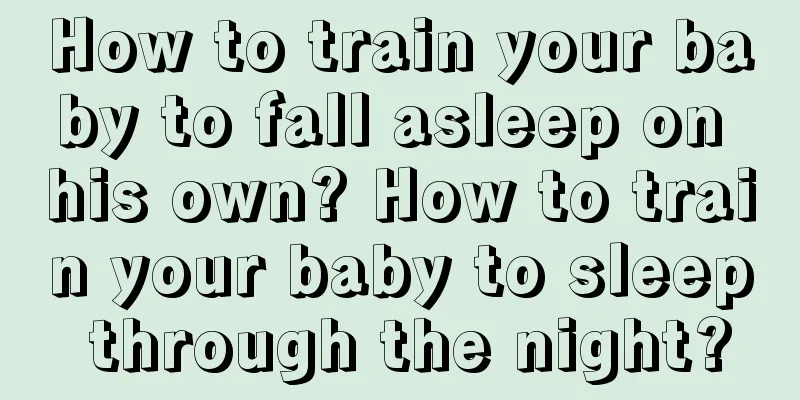Why does my baby wheeze? What causes my baby to wheeze?
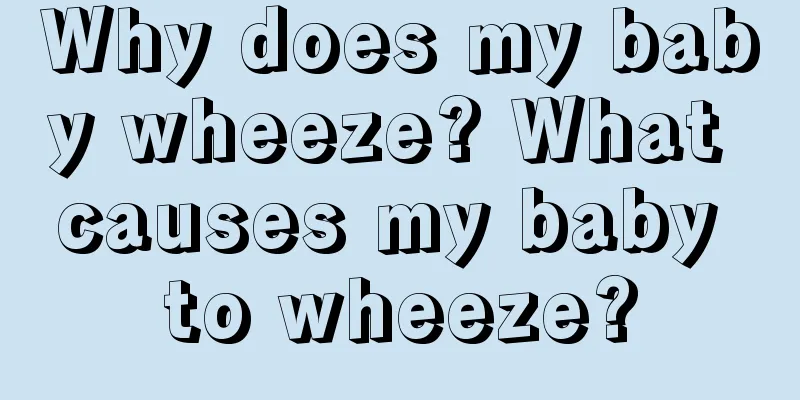
|
Many babies have wheezing problems in winter. Is this normal? Why do babies wheeze? Why does the baby wheeze?As the weather gets colder, many parents start to worry: Why do babies keep wheezing? Indeed, judging from the number of children seen in the outpatient clinic recently, the proportion of wheezing children has indeed increased. So, why do babies wheeze? Guiding expert: Li Zengqing, chief physician of Pediatrics Department, Guangdong Provincial Women and Children’s Health Hospital In fact, wheezing is a common respiratory symptom in infants and young children. When babies wheeze, they often breathe more laboriously, faster, and make "huff, huff" sounds when breathing. Some may also be accompanied by vomiting milk, poor spirits, and even cyanosis of the lips. Friends who have blown a whistle know that the whistle will make a sound when you blow hard. This sound is caused by the vibration of the air blown into the whistle. Then, by the same token, when certain factors (such as airway spasm, increased secretions, edema, etc.) can cause changes in the airflow in the trachea, it will also cause the baby to wheeze. Of course, the structure of the human body is much more complicated than a whistle, so the cause of wheezing is also relatively complicated. At present, authoritative scholars at home and abroad have proposed three phenotypes of childhood wheezing based on the different characteristics of wheezing in infants and young children, namely early transient wheezing, early onset persistent wheezing, and late onset wheezing, namely asthma. 1. Early transient wheezing refers to wheezing that occurs only before the age of 3, usually with low lung function after birth, and no personal or family history of allergies. Risk factors for low lung function include premature birth, passive smoking, etc. 2. Early-onset persistent wheezing usually occurs in infancy and often recurs before the age of 6, but gradually disappears after adolescence. There is no personal or family history of allergies. Most of this type of wheezing is caused by viral infection, among which respiratory syncytial virus is particularly common. For example, wheezing caused by bronchiolitis. 3. Late-onset wheezing, true asthma. These children's asthma often persists throughout childhood and even adulthood. They have typical allergic constitutions, most of which are accompanied by eczema, and their respiratory tracts have typical asthma pathological characteristics, requiring long-term treatment. There are many reasons for wheezing, and the common reasons vary at different ages. For example, if an infant under 3 years old wheezes for the first time, we should consider whether it is bronchiolitis caused by a viral infection. If the wheezing treatment is not effective or the wheezing has lasted for more than 4 weeks, or the baby wheezes frequently, a chest CT, fiberoptic bronchoscopy, cardiac color Doppler ultrasound and other examinations should be performed to first rule out whether the wheezing is caused by congenital airway or lung developmental abnormalities, foreign body aspiration, gastroesophageal reflux, congenital heart and vascular malformations, etc. Why is the child gasping for breath?First, myocarditis. Usually, some children have long periods of heavy breathing, which is also closely related to myocarditis. It is recommended that parents take their babies to such a hospital for diagnosis in time. When taking blood tests, if myocarditis is found, it is necessary to choose the appropriate method for treatment as soon as possible, because the symptoms will continue to worsen and cause greater harm to the child's health. Second, cold and fever. Because the child's physical constitution is relatively poor, and the seasons change greatly, if the baby is not given clothes in time, or because of some influenza, it is easy to cause some viral infection, causing the child to catch a cold or have a fever. When this syndrome occurs, there will also be heavy breathing. Therefore, parents should pay more attention and measure the baby's temperature in time. Third, bronchitis. Bronchitis is a syndrome that everyone is familiar with. Moreover, this disease can cause great harm to the body. If the appropriate method is not chosen for treatment as soon as possible, it will cause a series of complications, especially it will cause some children to have long-term symptoms of heavy breathing. Therefore, I hope that some parents and friends can pay more attention to it and take their babies for examination as soon as possible. What to do if your baby coughsA baby's cough will seriously affect the quality of sleep, and the baby's resistance will also decrease in the long run. In addition to drug treatment, the baby should also be given more care, and attention should be paid to conditioning and taboos. The baby should get enough sleep, drink enough water, eat more vegetables and fruits, and the diet should be easy to digest and nutritious. The diet should be light, and avoid giving the baby hairy, greasy, spicy and heavy food, and try to avoid carbonated drinks. The baby should be given less cold drinks. 1. Drink water properly, drink small amounts frequently. No matter what kind of cough it is, you should actively let your baby drink water, and don't wait until he is thirsty to think of drinking water. If your baby drinks enough water, the sticky secretions can be diluted and coughed out easily. At the same time, drinking water can improve blood circulation, and quickly excrete waste or toxins produced by the body's metabolism, thereby reducing irritation to the respiratory tract. 2. Eat light food, avoid raw, cold and greasy food. The diet of a baby with cough should be light, with more fresh vegetables, and a small amount of lean meat or eggs. Avoid greasy and fishy food. Fruits are also indispensable, but not too much. Oranges should not be eaten for wind-heat cough. Avoid sour food, which has the effect of astringing phlegm and is not conducive to phlegm. 3. Keep the indoor air fresh. Open windows regularly to ventilate the home, and keep the indoor air moderate, which is beneficial for keeping the respiratory mucosa moist and the cilia on the mucosa surface oscillating, which helps to discharge phlegm. 4. Cold-resistance training to enhance physical fitness. Wash your face with cold water, take a bath, or regularly let your skin get in close contact with fresh air from the beginning of autumn. The training methods are different, and the key is perseverance. But you must pay attention to the degree. Don't blindly "freeze" when the cold wave comes, so as not to catch a cold instead of exercising. 5. Focus on expectoration and use medication with caution. Children's respiratory system is not fully developed yet, and they cannot cough up phlegm as effectively as adults. They are prone to retaining phlegm. If antitussive drugs are given as soon as they cough, the cough will be stopped, but the suppressed cough will make it more difficult to expel phlegm, which will block the respiratory tract, aggravate the cough, and easily lead to lung infection. Therefore, expectorant treatment should be performed first in the early stages of a child's cough. Seven dietary taboos for babies with coughAvoid cold food It is not advisable to drink cold or frozen drinks when you have a cough. If you eat too cold drinks at this time, it will easily cause lung qi blockage, aggravate the symptoms, and not heal over time. Avoid fatty and sweet foods Traditional Chinese medicine believes that coughs are mostly caused by lung heat, especially in children. In daily diet, eating too much fatty and sweet food can cause internal heat, aggravate coughs, and make the phlegm thick and difficult to cough up. For children with asthma, eating too much fatty and sweet food can cause phlegm and heat to intertwine, block the respiratory tract, aggravate asthma, and make the disease difficult to cure. Don't eat too much fried food. When children cough, their gastrointestinal function is relatively weak. Fried food can increase the burden on the gastrointestinal tract, promote moisture and heat, breed phlegm, and make coughs difficult to cure. Avoid fish, shrimp and crab Most people know that coughing should avoid "irritating foods" and fish and shrimp are not suitable. Fish and shrimp have the greatest impact on "wind-heat cough". Children with coughs will have a more severe cough after eating fishy foods. This is related to the fishy smell irritating the respiratory tract and the protein allergy of fish and shrimp foods. Children who are allergic to certain fish and eggs should pay more attention, among which silver carp and hairtail have the greatest impact. Avoid sweet and sour foods Sour food often astringes phlegm, making it difficult to cough up phlegm, which worsens the condition and makes it difficult to cure the cough. When the cough is severe, apples, bananas, oranges, grapes, etc. should not be eaten. Eating sweets will also increase heat, making it difficult to cure inflammation. There is a folk custom of "stewing raw pears with rock sugar" to treat coughs, but this way of eating is inappropriate for the early stages of coughs. Avoid eating oranges Many people believe that oranges can relieve cough and reduce phlegm, so they let children with cough eat more oranges. In fact, orange peels do have the effect of relieving cough and reducing phlegm, but orange flesh can generate heat and phlegm. It is impossible for ordinary children to eat orange peels without eating orange flesh. Avoid eating peanuts, melon seeds, chocolate, etc. These foods contain a lot of fat, which can easily breed phlegm after eating and make the cough worse. Avoid taking supplements Some parents give supplements to children with weak constitutions, but if the child's cough has not been cured, the supplements should be stopped to avoid making the cough difficult to cure. |
Recommend
How to eat black beans to promote ovulation? When to eat black beans to promote ovulation?
When to eat black beans to promote ovulation? Wom...
What are the symptoms or feelings on the ovulation day?
When it comes to ovulation period, everyone shoul...
When is the best time to get pregnant when you are 20, 30 or 40 years old?
Most modern women marry late, and the resulting p...
How to name a cute baby boy nickname? How to name a cute baby boy nickname?
Babies are all very cute, so cute babies should o...
Is it normal to have diarrhea after taking Tianxi Pills? What should I do if I have diarrhea after taking Tianxi Pills?
Many women who want to have children will take Ti...
How is the quality of Hushubao sanitary napkins? Are Hushubao sanitary napkins fragrant?
Always sanitary napkins are also quite common on ...
How can children prevent colds in autumn? What should we do if children catch colds in autumn?
The climate in autumn is dry and the temperature ...
What do fathers need to do in early childhood education?
Fathers play a very important role in early child...
Which country is Crest toothpaste from? Which is better, Crest toothpaste or Sensodyne?
Crest toothpaste is a brand we are all familiar w...
Can babies use electric fans? At what age can babies use electric fans?
Electric fans are a must-have for cooling off in ...
How to use Omo sterilizing liquid? How about Omo sterilizing liquid?
Nowadays, when washing clothes, you need to use n...
What should a woman who has just given birth eat? Can I keep a child after taking birth control pills?
It is said that mothers are the greatest people i...
What fruits can't be eaten when there is little amniotic fluid? Two kinds of fruits can't be eaten
Women should pay special attention to their physi...
What is the difference between disposable diapers and cloth diapers? Which one is better?
Newborns need to use diapers or cloth diapers fro...
Why does a newborn baby always choke when feeding? What should I do if I choke when feeding?
The baby's swallowing ability is still develo...
